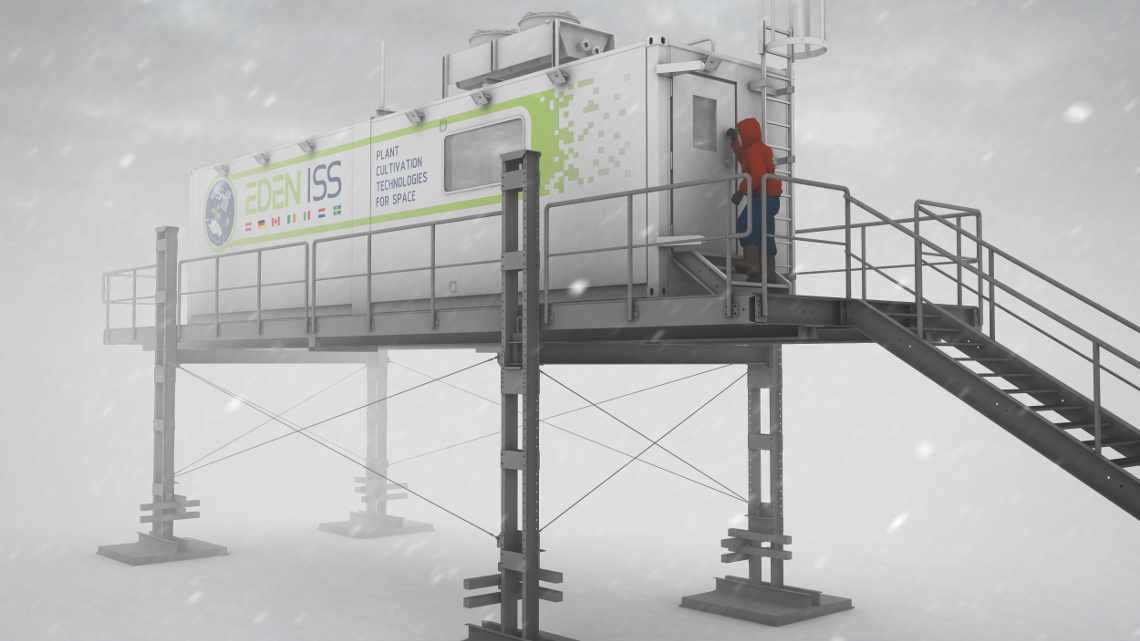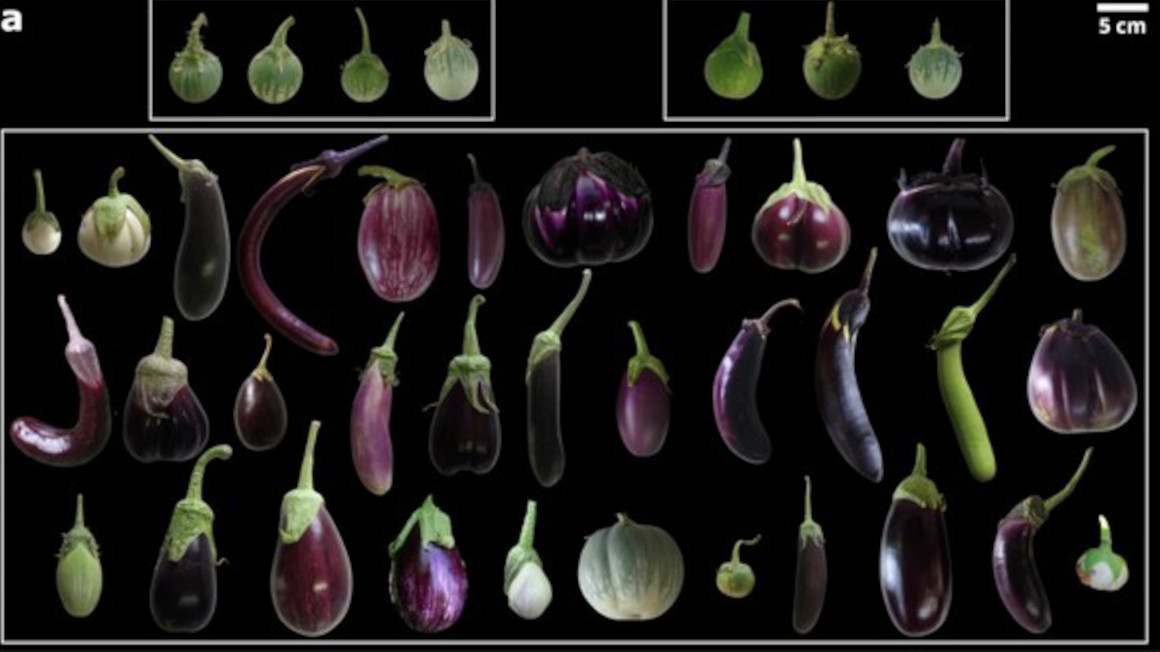A greenhouse for farming in space
A closed-loop greenhouse using Aeroponics to grow vegetables will be tested in Antarctica by German scientists. The set-up of the test run was recently presented to the public.

What do Antarctica and space have in common? Nothing can grow there. Except, that is exactly the goal of a new long-term experiment as part of the EDEN-ISS project. The EDEN-ISS project aims to develop plant cultivation technologies that can be used for safe food production in space in so-called closed-loop systems or closed greenhouses. Eventually, the goal is to employ these new methods on-board the International Space Station (ISS) or for future human space exploration vehicles and planetary outposts.
A system independent of weather, sun, and seasons
A closed greenhouse is exceptionally well suited to grow food under inhospitable environmental conditions: it permits harvesting regardless of the weather, the sun, and specific seasons. In a closed greenhouse, water consumption is immensely reduced and there is no need for pesticides and insecticides. Truly one-of-a-kind, a greenhouse like that was presented to the public for the first time at the Bremen site of the German Aerospace Center (Deutsches Zentrum für Luft- und Raumfahrt; DLR) on July 7. As part of the EDEN-ISS project, it will set off for the Antarctic at the end of 2017 for a year of long-term testing under extreme conditions. "DLR is pursuing application-oriented research within the EDEN-ISS project. Its purpose is to bring fresh impetus to food production on Earth and for human space flight," says Hansjörg Dittus, DLR Executive Board Member for Space Research and Technology. "In doing so, we are advancing the cause of a key technology that will provide a fresh diet to inhabitants of climatically harsh regions – in our case the Antarctic – as well as to astronauts on future long-term missions."
In December 2017, together with the greenhouse, the DLR scientist Paul Zabel will also relocate to the Antarctic. He will remain there for one year, during which he will be a member of the winter crew of the Neumayer III Antarctic station, which is operated by the Alfred Wegener Institute (AWI). "Cucumbers, radishes, peppers, lettuce and herbs are already growing in the test run being conducted in Bremen," says Project Coordinator Daniel Schubert from the DLR Institute of Space Systems.
Growing vegetables without soil: Aeroponics
Zabel, himself an engineer by vocation, was trained in vegetable gardening in the Netherlands. Europe’s foremost research institute related to food production is located in Wageningen, in the Netherlands. Experts of the field briefed Zabel on the basics of farming. Moreover, he was trained by nutrition experts on the requirements of minerals and trace elements for tomatoes and strawberries: the plants will not grow on earth, but will have to be cared for via nutrient solutions – a system called Aeroponics. Aeroponics is a technique used to cultivate plants in a sterile environment without soil by spraying them with a water/nutrient blend. "By providing special artificial light, an ideal temperature, and selected nutrients entirely without soil, we are able to grow our plants more quickly and with a higher yield than in their natural environment", says Schubert. Additionally, Zabel was taught to recognize pests early on and how to counteract them successfully. The researchers also adjust the atmosphere in the greenhouse to best suit the needs of the plants. "We increase the carbon dioxide content, use special filters to clean the air of any fungal spores and bacteria, and sterilise the air with UV radiation," says Schubert. "This enables entirely organic cultivation without insecticides and pesticides." Like on a space station, the greenhouse has an airtight circulation system, including an airlock that Paul Zabel will use as his daily entrance. Moreover, the closed circuit will make it possible to recapture all of the water that the plants release into the air and reuse it.
The goal for the Antarctic vegetable farm will be a weekly harvest of 1.3 kilogramme of salad, 1.1 kilogramme of cucumbers, and 250 gram of spinach. Until the move to Antarctica in the fall of 2017, the greenhouse will be continuously tested Germany. In particular the intricate circulation system managing light and the air, as well as the specific nutrient solutions are still being tested.
A year in Antarctica
The Neumayer III station is manned by scientists all year round. Located on the Eckström Ice Shelf in the Atlantic sector of Antarctica, the station is the base for German Antarctic research. Up to 50 people live in the station during the Antarctic summer – but only nine people remain at the base: one cook, three engineers, one doctor and four scientists. Zabel will be the tenth member of the upcoming winter crew. "Provisions are delivered by ship once a year around Christmas – six containers filled with approximately 60 tons of food and drink. Fruits and vegetables are stored as frozen to make them last during the long winter isolation phase," says long-standing station director Eberhard Kohlberg. Fresh fruit, vegetables and lettuce from South Africa are sent by air freight every three to four weeks in the summer season from November to February. The last rations of fresh produce arrive at the station in late February. The following months are spent without fresh lettuce, tomatoes and cucumbers. There are only a few types of fruit that keep for longer and will last until May. Potatoes and onions are the only items that can be stored for extended periods. "So the first delivery of fresh lettuce and tomatoes in November is highly anticipated," says Kohlberg. Therefore, the new closed-loop greenhouse vegetables are not only a test-run for future space explorations, but will also benefit the current staff in Antarctica: "In addition to testing plant cultivation, we are also excited to find out how the station team responds to the fresh additions to their menu," Daniel Schubert says. "I am sure the strawberries will be a particular delight."
jmr


